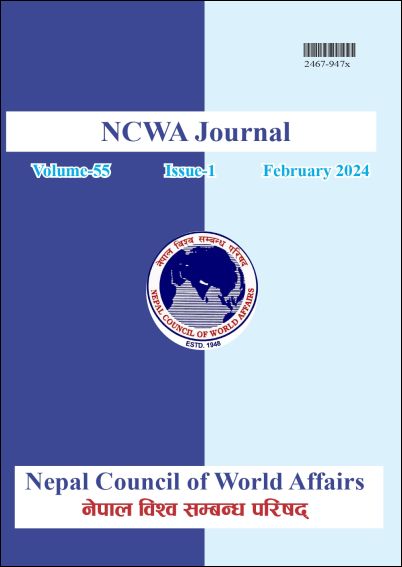Climate Diplomacy: Implications and Prospects for Nepal
DOI:
https://doi.org/10.3126/ncwaj.v55i01.62974Keywords:
economic diplomacy, Kalapathar Declaration, greenhouse gas emission, glacier retreat, fossil fuels, robust climate diplomacyAbstract
Nepal has come a long way from the time of the ‘Kalapathar Declaration’ in 2009 for the 15th Conference of the Parties (COP) up to the COP 28 in 2022. With just 0.4% of the total global population and emitting only 0.025 % of total greenhouse gas emissions, Nepal is disproportionately affected by climate change and is listed as the fourth most climate-vulnerable country in the world as per the global climate risk index. The loss of lives due to climate-induced disasters within a decade (2001 – 2010) and in 2023 alone is reported to be more than 4000 and 393 people respectively causing an economic loss of USD 5.34 billion and 2.89 billion respectively. Since Nepal lacks institutional and technical capacity and financial resources to tackle the impacts of climate change, the pursuit of robust climate diplomacy is called for ‘to shape and reframe the core national interest at home and influence deliberations abroad’. Hence, climate diplomacy could be a strategic instrument of Nepal’s foreign policy in terms of energizing relations with friendly nations and mobilizing climate change-affected countries to take up a common stand for getting maximum international assistance and support.




